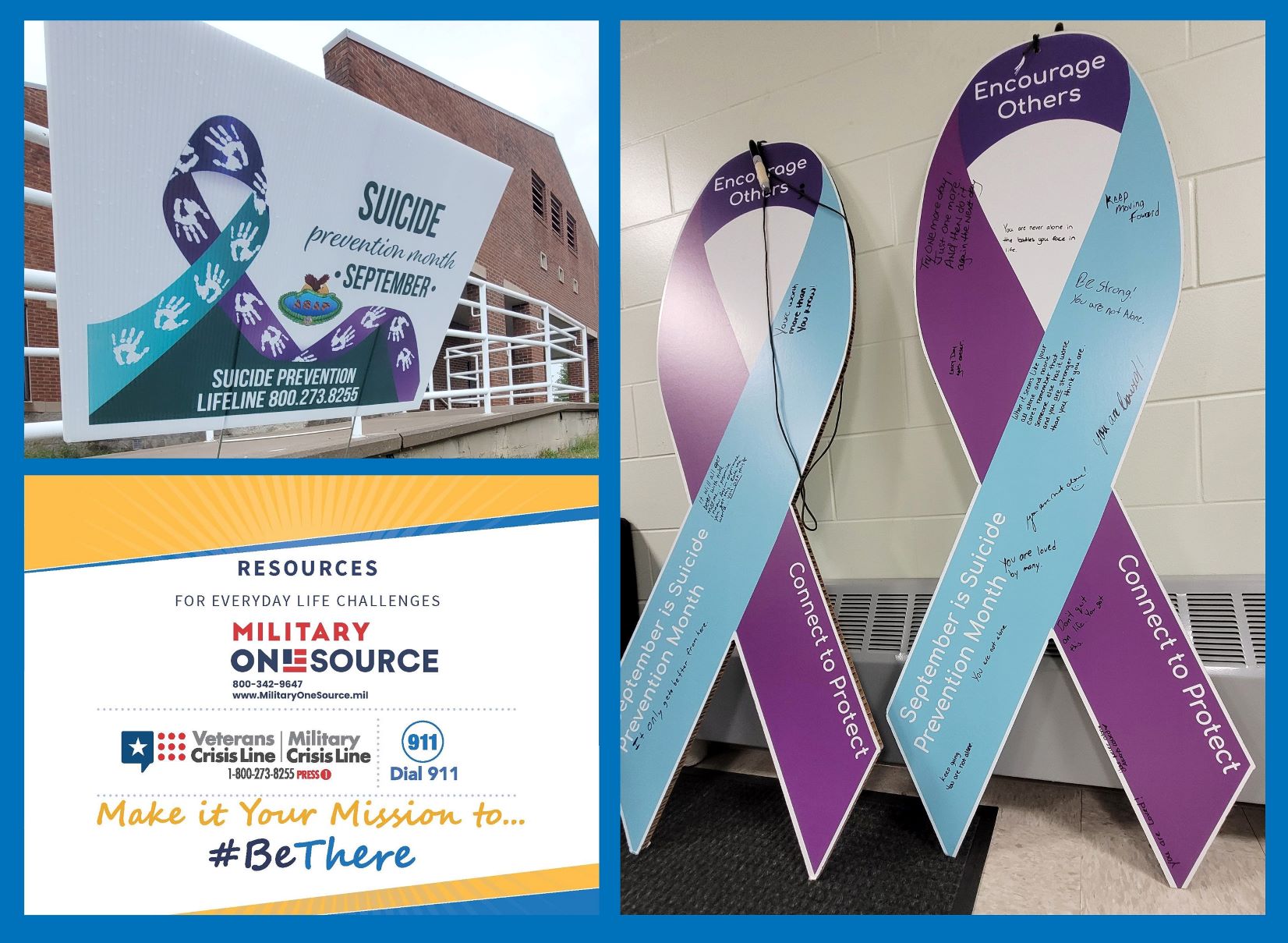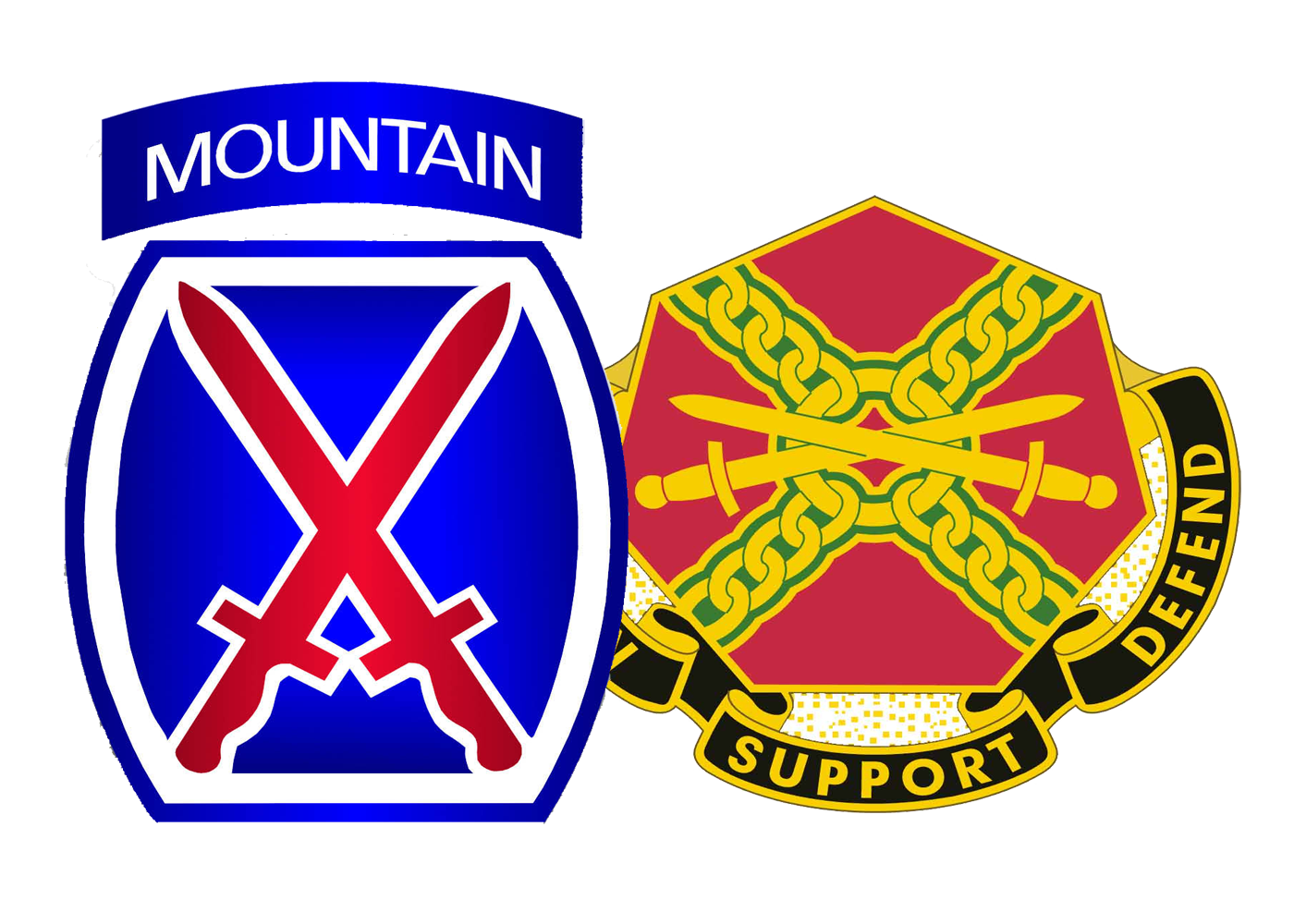
September is Suicide Prevention Month. If you or someone you know is struggling, there is 24-hour help available by calling the National Suicide Prevention Lifeline at 1-800-273-8255 or by visiting www.suicidepreventionlifeline.org. For more information about the Fort Drum Suicide Prevention Program, call (315) 772-9018 or visit the Soldier and Family Readiness Center, Bldg. 10250, on 4th Armored Division Drive. (Graphic by Mike Strasser, Fort Drum Garrison Public Affairs)
‘Connect to Protect’ campaign at Fort Drum promotes togetherness in preventing suicides
Mike Strasser
Fort Drum Garrison Public Affairs
FORT DRUM, N.Y. (Sept. 24, 2021) – Suicide is a public health issue that affects communities across the country, and Suicide Prevention Month offers an opportunity to further people’s understanding of this complex issue.
This year’s campaign theme is “Connect to Protect: Support is Within Reach.”
“To me, that means two things,” said Bill Van Orman, Fort Drum Suicide Prevention Program manager. “First, it’s about building those connections, those social relationships that you can lean on when you need to. It’s having a sense of belonging or purpose and feeling that you matter.”
“Connect to Protect” is also knowing about the resources available in the community and being able to provide that information to others in need.
“I always say that the best thing you can do is go where you will be most comfortable,” Van Orman said. “Who are they most comfortable speaking with – a behavioral health specialist, an MFLC (military and family life counselor), a chaplain? People will open up more to who they best connect with.”
Van Orman said that a conversation may reveal other ways to help an individual.
“If someone’s finances have become a major stressor, then I want to get them to that resource (Financial Readiness Program, Army Emergency Relief or Legal Assistance) to take care of that risk factor,” he said. “If they are having marital or relationship issues, the Family Advocacy Program has a lot of great people to talk with and programs that can help.”
In support of Suicide Prevention Month, Van Orman began a video series on the Fort Drum Army Substance Abuse Program Facebook page.
Each video focuses on a different Army pillar of readiness – physical, emotional, social, spiritual and family – that serves as the foundation for overall wellness and resilience.
In the first video, he spoke with Dave Harrigan, 1st Brigade Combat Team’s Holistic Health and Fitness (H2F) program director, about physical resilience, how physical fitness affects mental health and how people respond to adversity.
“Everybody in the Army is familiar with physical fitness, and so I thought it would be a good starting point to generate the conversation about the five pillars,” he said. “So we know that Soldiers are physically fit, but what if that’s the one pillar I rely on and then I become injured or get ill? It can happen to any of us. But if that’s my go-to pillar and I don’t spend any time or effort on the other four pillars, I’m going to struggle.”
The social and family pillars can be affected by deployments or moving to new duty stations.
“We move constantly in the military, and that can strain relationships,” Van Orman said. “We can be separated from our families for a period of time, and while the relationship is still there, it’s harder to foster if I can’t communicate as I normally would. People can also struggle spiritually, whether it’s in a religious sense or a sense of purpose.”
Van Orman said that when he retired from the Army, it was a struggle of self-identity.
“I had the other pillars, but I kind of struggled with the question of ‘Who am I’ and ‘What do I do now?’” he said.
Van Orman had one support group already in place at that time, as the local chapter captain for Team Red, White and Blue (RWB).
“Even though I may have felt a little lost, career-wise, I still had my family and I had this group that I felt was important and it gave me a sense of purpose and belonging,” he said. “Knowing I had a team out there, they relied on me, and we had these great social relationships – it really carried me through that period until I established my post-Army career.”
Van Orman said that there are many groups and organizations in the community where people can connect, be social and contribute. He recently posted a video focusing on the BOSS (Better Opportunities for Single Soldiers) program, which provides healthy, social activities for Soldiers and opportunities to volunteer in the community.
“I’m a huge proponent of the BOSS program, because this is where single Soldiers can go to build those social relationships,” Van Orman said, “especially when you’re new to Fort Drum and don’t know many people. It’s a great way to get active and be around people. I remember when I was a brand-new Soldier. You just show up, you go to your assigned room and then you begin thinking, ‘I am away from my family, I’m alone, what did I do? I feel that building those relationships early on is critical for Soldiers.”
Van Orman spoke with Cpl. Chris Jones, Fort Drum BOSS president, to highlight the social pillar.
Jones said that when the BOSS team organizes an event, such as a gaming tournament, it attracts Soldiers across the installation who otherwise might never have met. Camaraderie develops, they forge friendships and, as Van Orman noted, this fosters an overall sense of belonging.
The video series is available at www.facebook.com/FortDrumASAP/.
The 10th Mountain Division (LI) command team also posted a video on social media for Suicide Prevention Month.
“Every life is worth living,” said Maj. Gen. Milford H. Beagle Jr., 10th Mountain Division (LI) and Fort Drum commander. “If you have problems, challenges or issues, help is there from this chain of command all the way down. We are here to get you the resources you may need.”
Command Sgt. Maj. Mario O. Terenas, 10th Mountain Division (LI) and Fort Drum senior enlisted adviser, said that no one needs to suffer in silence.
“Tell your story, tell your battle buddies, find that one person that’s going to help you through that struggle,” he said.
Van Orman said that every Soldier receives a suicide intervention and prevention briefing during the Newcomer’s Briefing when they first arrive at Fort Drum, and they receive refresher training annually. The Army Substance Abuse Program also provides additional unit training upon request.
Van Orman said that suicide prevention education can clear up misconceptions and help people understand the facts.
“There is a perception that if you ask for help then you are broken, and people don’t want to be perceived like that, especially in the Army,” he said. “You always hear, ‘Well, I’m a lone wolf,’ which is a horrible analogy because, in the wild, a wolf doesn’t survive on its own. We are social creatures by nature, and connecting with others is important to us.”
That was a message Army Chief of Chaplains (Maj. Gen.) Thomas Solhjem communicated at Fort Drum recently when he hosted a spiritual readiness pilot program for the installation’s chaplains and behavioral health and support services professionals.
“We often perceive it is a sign of weakness to ask for help,” he said. “It is not. Sometimes our Soldiers and our families need somebody to lock arms with and say, ‘I’m going to help you.’”
If you or someone you know is struggling, there is 24-hour help available by calling the National Suicide Prevention Lifeline at 1-800-273-8255 or visiting www.suicidepreventionlifeline.org.
For more information about the Fort Drum Suicide Prevention Program, call (315) 772-9018 or visit the Soldier and Family Readiness Center, Bldg. 10250, on 4th Armored Division Drive.
For more information about suicide prevention, visit www.armyresilience.army.mil.





